In the realm of international trade, sea freight stands out as a cornerstone for businesses looking to import goods efficiently and cost-effectively. This method of transporting cargo via ocean vessels offers significant advantages, particularly for large shipments from countries like China. With lower shipping costs, the ability to handle diverse cargo types, and environmentally friendly options, sea freight is often the preferred choice for importers worldwide. However, navigating the complexities of shipping from China to destinations such as Iraq requires a thorough understanding of shipping methods, required documents, customs clearance procedures, and associated costs. This comprehensive guide will explore the key elements of sea freight, essential considerations for shipping from China to Iraq, and practical tips to enhance your logistics strategy.
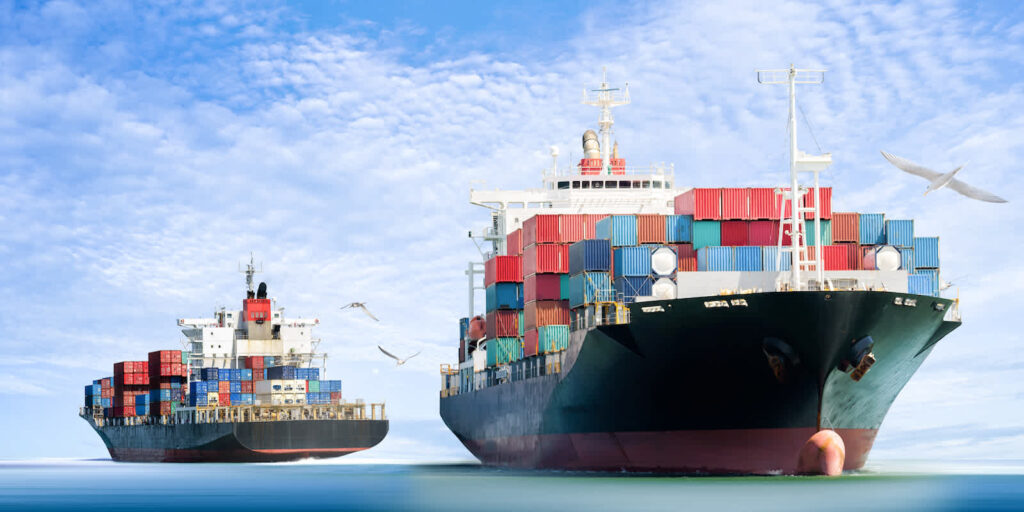
Understanding Sea Freight
Sea freight is the process of transporting goods via ocean vessels, a method widely utilized for international trade due to its efficiency and cost-effectiveness. Unlike air freight, which is generally faster but more expensive, sea freight offers a reliable option for shipping large quantities of goods over long distances at a lower cost per unit. This makes it particularly appealing for businesses looking to import goods, such as those sourcing from China.
Choosing sea freight can be driven by several factors:
-
Cost-effectiveness: Sea freight rates tend to be cheaper than air freight, especially for heavy and bulky items. According to recent industry data, sea freight costs can be as low as 20-40% of air freight costs for shipments of similar weight.
-
Capacity: Cargo ships can hold a much larger volume of goods compared to aircraft, making sea freight ideal for bulk shipping. This is particularly beneficial for businesses needing to import large quantities of goods at once.
-
Environmentally Friendly: Sea freight generally has a lower environmental impact per ton of cargo transported compared to air freight, aligning with sustainability goals for many organizations.
Benefits of Sea Freight for Importing Goods
When importing goods, the advantages of sea freight become evident:
-
Lower shipping costs: As mentioned, sea freight prices are generally lower than air freight, allowing for significant savings, especially for larger shipments.
-
Flexibility in cargo types: Sea freight allows for the transportation of a diverse range of goods, including heavy machinery, textiles, electronics, and even vehicles, making it a versatile choice for importers.
-
Regular schedules: Shipping lines operate on fixed schedules, which can help businesses plan their inventory and production needs more effectively.
-
Extended reach: Sea freight provides access to international markets, enabling businesses to expand their sourcing options beyond local suppliers.
-
Safety of goods: Cargo transported via sea freight is usually well-secured in containers, reducing the risk of damage during transit.
For those considering importing from China, sea freight is often the most practical and financially viable method.
Key Considerations for Shipping from China to Iraq
When shipping from China to Iraq, several critical factors must be considered to ensure a smooth logistics process. This involves understanding shipping methods, routes, required documents, and customs clearance processes.
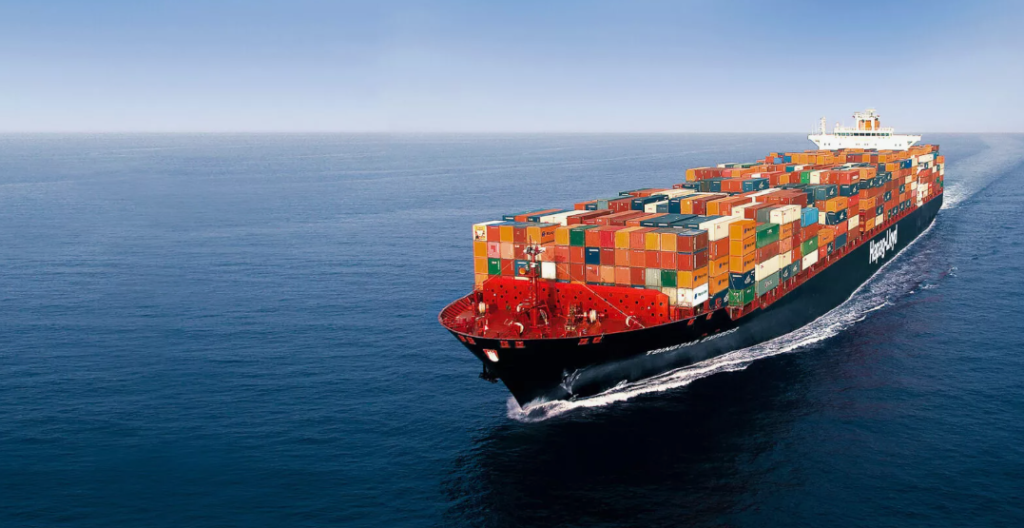
Shipping Methods
There are two primary methods of sea freight: full container load (FCL) and less than container load (LCL).
| Shipping Method | Description | Best Suited For |
|---|---|---|
| FCL | A full container is used for a single shipment, ideal for large quantities of goods. | Businesses with large shipments that can fill a container. |
| LCL | Multiple shipments from different suppliers are consolidated into one container. | Smaller shipments that do not require a full container. |
Selecting the right shipping method can significantly influence overall costs and transit times.
Shipping Routes
The choice of shipping route can affect both the duration and reliability of the shipping process. Common shipping routes from China to Iraq typically pass through major ports such as:
- Shanghai to Port of Umm Qasr
- Shenzhen to Port of Basra
Utilizing established shipping lanes helps ensure timely delivery and minimizes delays caused by weather or other disruptions.
Required Documents
When shipping goods from China to Iraq, several documents are essential for compliance with international shipping regulations, including:
- Bill of Lading: A contract between the shipper and carrier detailing the shipment.
- Commercial Invoice: A document that specifies the transaction between the buyer and seller, including item descriptions and prices.
- Packing List: Details what is contained within each package, assisting customs officials in inspection.
- Certificate of Origin: Identifies the country where the goods were produced, which may be necessary for tariff regulations.
Ensuring all necessary documentation is accurate and complete is crucial for avoiding delays in customs clearance.
Customs Clearance
Navigating the customs clearance process is pivotal for successful importation. This involves understanding Iraqi regulations, tariffs, and taxes that may apply to your shipment. Key steps include:
-
Pre-Approval of Documents: Ensure all required documents are prepared and approved prior to shipment.
-
Customs Duties and Taxes: Familiarize yourself with the applicable duties and taxes on imported goods to budget accordingly.
-
Engage a Customs Broker: Utilizing the expertise of a professional customs broker can facilitate the clearance process, ensuring compliance with all regulations and minimizing the risk of delays.
Dantful International Logistics provides tailored services, including customs clearance, to streamline the import process from China to Iraq.
By being informed and prepared, businesses can navigate the complexities of sea freight shipping efficiently, turning logistics into a strategic advantage. For comprehensive support in your shipping needs, consider partnering with Dantful to access a highly professional, cost-effective, and high-quality logistics service tailored for global traders.
Shipping From China to Middle East Countries:
- Shipping from China to Saudi Arabia
- Shipping from China to UAE
- Shipping from china to KUWAIT
- Shipping From China To EGYPT
- Shipping from China to Bahrain
- Shipping From China To Jordan
- Shipping From China To Israel
- Shipping from China to Qatar
- Shipping From China To IRAQ
- Shipping from China to Iran
Major Ports for Sea Freight
Top Chinese Ports for Exporting to Iraq
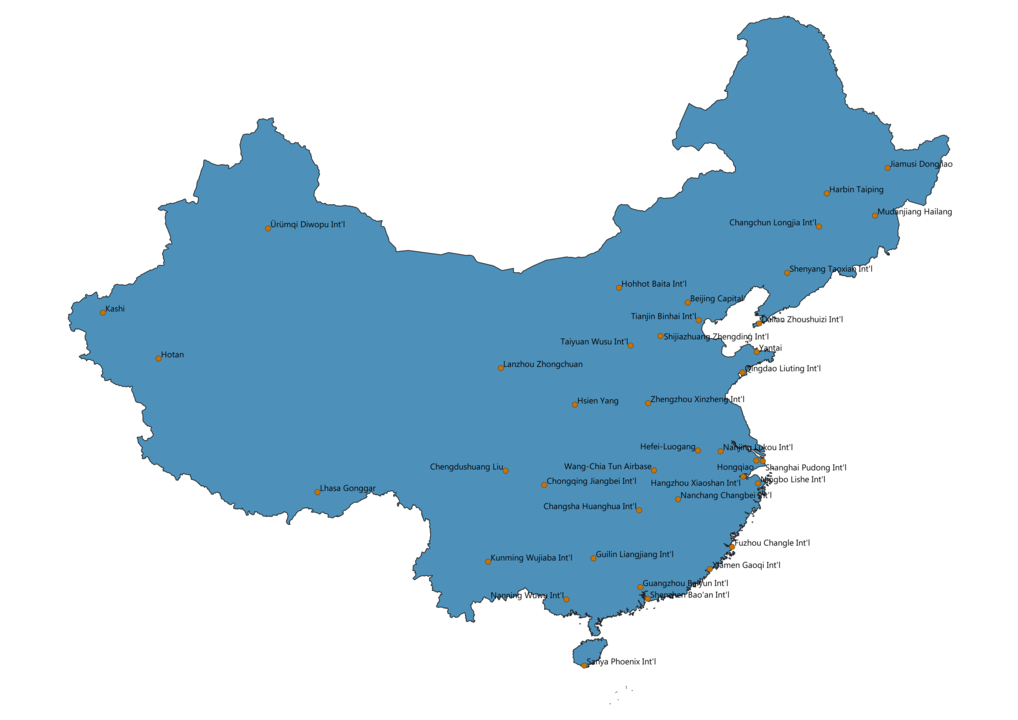
China is home to numerous ports that serve as significant gateways for international trade, particularly for exporting goods to Iraq. The following are some of the most prominent ports facilitating this trade:
| Port Name | Location | Key Features |
|---|---|---|
| Shanghai | Shanghai | The largest and busiest port in China, with extensive shipping connections and modern facilities. Ideal for a wide range of exports. |
| Shenzhen | Guangdong | Known for its proximity to electronics manufacturing hubs, making it a critical port for tech product exports. |
| Ningbo | Zhejiang | A major port for bulk goods, offering efficient logistics services and connections to Southeast Asia. |
| Qingdao | Shandong | Provides excellent access to northern China and has advanced facilities for handling various cargo types. |
| Hong Kong | Hong Kong | A crucial international shipping hub, featuring a deep-water port and a well-established logistics network. |
These ports are equipped with advanced infrastructure, ensuring efficient loading and unloading processes, which are essential for timely deliveries to Iraq.
Key Iraq Ports for Imports
Once goods arrive in Iraq, they typically enter through the following key ports, which play a critical role in the country’s import logistics:
| Port Name | Location | Key Features |
|---|---|---|
| Port of Umm Qasr | Basra Governorate | The primary seaport in Iraq, crucial for various imports, with facilities capable of handling large volumes of cargo. |
| Port of Basra | Basra | A significant commercial port, serving as the main entry point for goods into southern Iraq. |
| Port of Khor al-Zubair | Basra | Known for its industrial capabilities, it caters to both commercial shipping and the oil industry. |
These ports are vital for the successful import of goods into Iraq, ensuring that products reach their final destinations efficiently.
The Sea Freight Shipping Process Step-by-Step
Understanding the step-by-step process of sea freight shipping is essential for successful importation from China. Below are the critical stages involved in the shipping process:
1. Obtaining a Freight Quote and Booking
-
Providing Shipment Details to the Freight Forwarder: This initial step entails supplying the freight forwarder with crucial information, including cargo dimensions, weight, type of goods, value, and destination.
-
Agreeing on Shipping Terms and Rates: After assessing the shipment’s details, the freight forwarder will provide a quote. It is crucial to review the terms, including payment conditions, insurance, and delivery timelines.
-
Confirming the Booking: Once both parties agree on the terms, the booking is confirmed. A booking confirmation typically includes all relevant details such as vessel name and expected departure dates.
2. Cargo Pick-Up and Delivery to the Port
-
Arranging for Cargo Pick-Up from the Supplier: The freight forwarder coordinates the collection of goods from the supplier in China.
-
Transporting the Goods to the Port of Departure in China: The cargo is then transported to the designated port, ensuring timely arrival for loading.
3. Export Customs Clearance in China
-
Submitting Required Documents: This step requires submitting documentation, including the bill of lading, commercial invoice, and packing list to the customs authorities in China.
-
Paying Export Duties and Taxes: Any applicable export duties must be paid to complete the clearance process.
4. Loading and Ocean Transportation
-
Loading the Cargo onto the Vessel: Once cleared, the cargo is loaded onto the shipping vessel, ensuring proper handling and stowage to prevent damage during transit.
-
Transit Time from China to Iraq: Depending on the shipping route, the transit time typically ranges between 25 to 40 days, influenced by factors such as vessel speed, weather, and port congestion.
5. Import Customs Clearance in Iraq
-
Submitting Import Documents: Upon arrival in Iraq, necessary import documents must be submitted to the Iraqi customs authorities for clearance.
-
Paying Import Duties and Taxes: Import duties and taxes must be settled before the goods can be released for unloading.
6. Cargo Unloading and Delivery to the Final Destination
-
Unloading the Cargo at the Port of Arrival in Iraq: Once customs clearance is complete, the cargo is unloaded at the port, typically at Umm Qasr or Basra.
-
Arranging for Final Delivery to Your Warehouse or Facility: The final step involves coordinating the last-mile delivery to the designated warehouse or facility, ensuring the goods reach their intended location promptly.
Dantful International Logistics offers comprehensive support throughout this shipping process, providing reliable and efficient customs clearance and door-to-door shipping services tailored to meet the unique needs of businesses importing goods from China to Iraq. By leveraging our expertise, you can navigate the complexities of international logistics with confidence.
Dantful International Logistics Services:
- Dantful Ocean Freight Services
- Air Freight From China
- Amazon FBA Freight Forwarding
- WAREHOUSE Services
- One-Stop Customs Clearance Solution
- Cargo Insurance Services in China
- DDP Shipping Services By Dantful Logistics
- Out of Gauge Cargo Transportation Shipping Services
Shipping Costs from China to Iraq by Sea Freight
Breakdown of Sea Freight Costs
Understanding the various components of sea freight costs is essential for budgeting and financial planning when importing goods from China to Iraq. The overall shipping cost consists of several factors, which can be categorized as follows:
| Cost Component | Description |
|---|---|
| Freight Charges | The primary cost charged by the carrier for transporting goods. This may vary based on shipping method (FCL or LCL) and cargo type. |
| Port Fees | Charges imposed by ports for loading and unloading cargo. This includes handling and storage fees at both the port of departure and the port of arrival. |
| Customs Duties and Taxes | Government-imposed fees on imported goods, which vary based on the product category and value. |
| Insurance | Optional but recommended coverage against potential loss or damage during transit. The cost is usually based on the shipment’s value. |
| Documentation Fees | Costs associated with preparing necessary shipping documents, such as the bill of lading and commercial invoice. |
| Delivery Charges | Fees for transporting goods from the port to the final destination in Iraq, which may depend on distance and the logistics provider used. |
Understanding these components enables importers to anticipate shipping expenses more accurately and make informed decisions regarding logistics providers.
Tips for Reducing Shipping Expenses
Reducing shipping costs is a priority for many businesses, especially when importing goods from China. Here are some practical strategies to minimize expenses:
-
Optimize Packaging: Efficient packaging can reduce the size and weight of your shipment, lowering shipping costs. Consider using lightweight materials and minimizing empty space in boxes.
-
Consolidate Shipments: If possible, combine multiple smaller shipments into a single larger shipment (FCL). This often results in a lower per-unit shipping cost compared to separate shipments (LCL).
-
Negotiate Rates: Work with freight forwarders to negotiate better shipping rates based on your shipping volume and frequency. Building a long-term partnership can often lead to more favorable terms.
-
Choose the Right Shipping Method: Assess whether FCL or LCL shipping is more cost-effective for your needs. FCL is generally cheaper for large shipments, while LCL may be more economical for smaller loads.
-
Plan Ahead: Avoid last-minute shipments, which can incur higher costs. Planning shipments well in advance can allow for better rate negotiations and schedule flexibility.
-
Utilize Special Services: Freight forwarders like Dantful often provide specialized services, such as insurance services and warehouse services, which can help streamline logistics and reduce costs.
By implementing these strategies, businesses can optimize their shipping operations and enhance their profit margins.
Shipping Times from China to Iraq by Sea Freight
Port-to-Port Delivery
The transit time for sea freight shipments from China to Iraq can vary significantly based on multiple factors, including shipping routes and the specific Chinese ports of origin. Below are typical transit times for major port pairs:
| Port Pair | Average Transit Time |
|---|---|
| Shanghai to Port of Umm Qasr | 30 to 35 days |
| Shenzhen to Port of Basra | 25 to 30 days |
| Ningbo to Port of Umm Qasr | 28 to 33 days |
| Qingdao to Port of Basra | 32 to 37 days |
Factors affecting port-to-port delivery times include:
- Vessel Speed: The speed of the shipping vessel can significantly influence transit times.
- Weather Conditions: Adverse weather can cause delays in shipping schedules.
- Port Congestion: Busy ports can lead to longer waiting times for loading and unloading.
- Customs Processing: Delays in customs clearance at either origin or destination ports can impact overall delivery times.
Door-to-Door Delivery
For businesses requiring a more streamlined logistics solution, door-to-door delivery encompasses the entire shipping process, from the supplier’s location in China to the final destination in Iraq. This service includes pick-up, all transportation, customs clearance, and delivery.
The transit time for door-to-door delivery typically ranges from 30 to 45 days, depending on similar factors affecting port-to-port delivery. The added complexity of handling customs clearance and local delivery arrangements can extend the overall timeline.
Dantful International Logistics specializes in providing comprehensive door-to-door shipping services, ensuring that shipments are delivered efficiently and reliably. By utilizing their expertise, businesses can expect timely delivery and reduced hassle in navigating customs and logistics.
FAQs
1. What is sea freight and why should I choose it for shipping goods?
- Sea freight is the transportation of goods by ocean vessels. It is often chosen due to its cost-effectiveness, especially for large shipments, as well as its capacity to handle bulky goods. Sea freight also has a lower environmental impact compared to air freight.
2. What are the main shipping methods available when importing from China to Iraq?
- The two primary methods are Full Container Load (FCL) and Less than Container Load (LCL). FCL is ideal for large shipments that fill an entire container, while LCL is suitable for smaller shipments consolidated with others.
3. What documents are required for shipping from China to Iraq?
- Essential documents include the Bill of Lading, Commercial Invoice, Packing List, and Certificate of Origin. Accurate documentation is critical for smooth customs clearance.
4. How long does it take to ship goods from China to Iraq?
- Transit times typically range from 25 to 40 days depending on the specific ports used. Door-to-door delivery can take between 30 to 45 days, factoring in additional logistics and customs processing.
5. What factors impact shipping costs from China to Iraq?
- Shipping costs consist of several components, including freight charges, port fees, customs duties, insurance, documentation fees, and delivery charges. Understanding these can help in budgeting effectively.
6. How can I reduce my shipping expenses?
- Strategies to reduce costs include optimizing packaging, consolidating shipments, negotiating rates with freight forwarders, choosing the right shipping method, and planning shipments in advance.
7. What are the key ports involved in shipping from China to Iraq?
- Major Chinese ports include Shanghai, Shenzhen, Ningbo, Qingdao, and Hong Kong. In Iraq, key ports for imports are the Port of Umm Qasr and Port of Basra.

Young Chiu is a seasoned logistics expert with over 15 years of experience in international freight forwarding and supply chain management. As CEO of Dantful International Logistics, Young is dedicated to providing valuable insights and practical advice to businesses navigating the complexities of global shipping.
The other language versions of this article
- دليل خطوة بخطوة للشحن البحري من الصين إلى العراق
- Stapsgewijze handleiding voor zeevracht van China naar Irak
- Guide étape par étape du fret maritime de la Chine vers l’Irak
- Schritt-für-Schritt-Anleitung für Seefracht von China in den Irak
- Guida passo passo al trasporto marittimo dalla Cina all’Iraq
- Guía paso a paso para el transporte marítimo de China a Irak
- Guia passo a passo para frete marítimo da China para o Iraque
- Пошаговое руководство по морским перевозкам из Китая в Ирак
- Çin’den Irak’a Deniz Taşımacılığına İlişkin Adım Adım Kılavuz











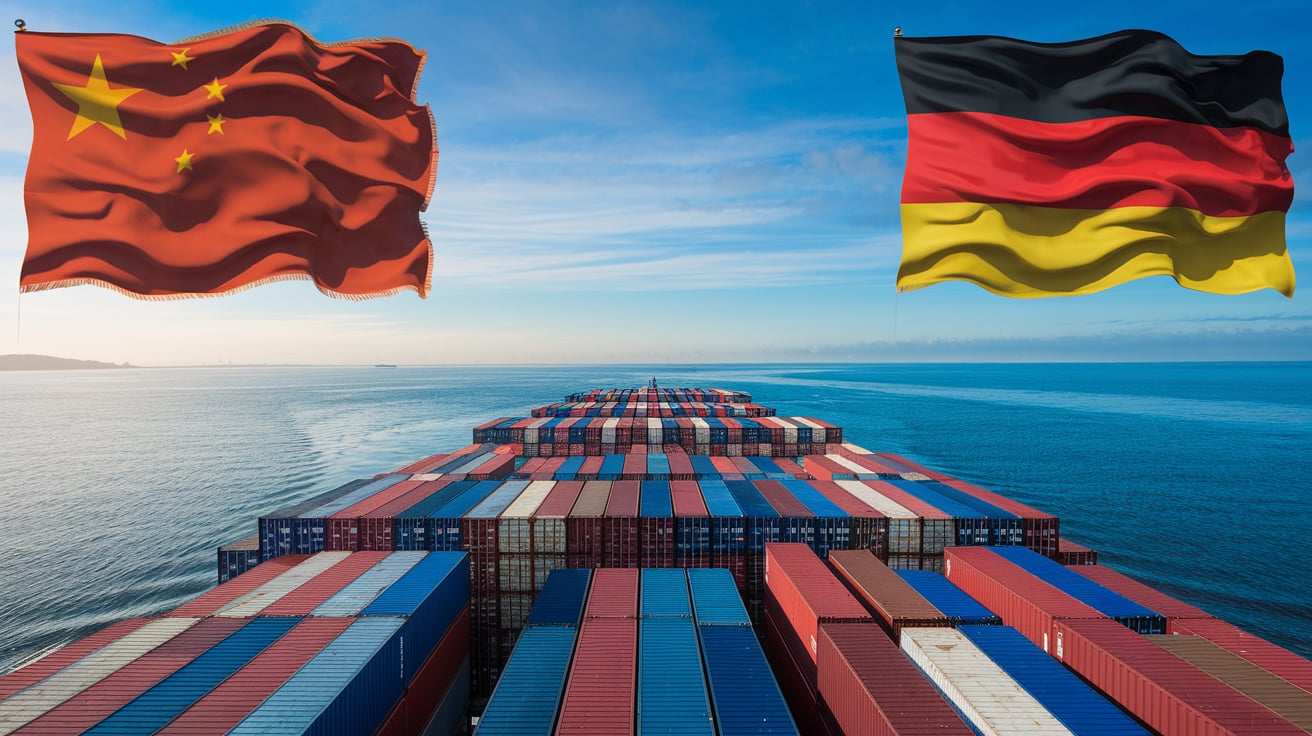
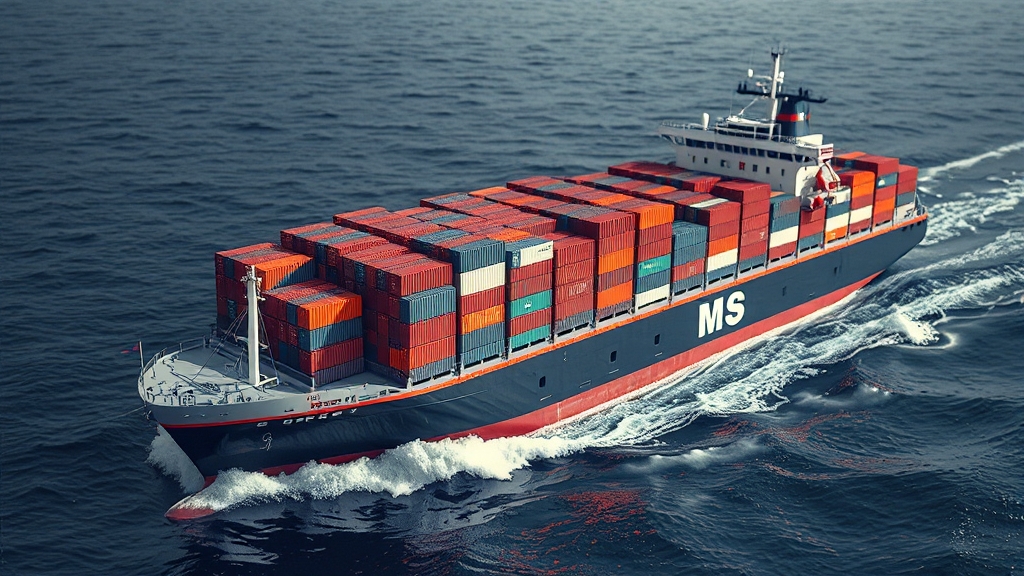







 Afrikaans
Afrikaans Shqip
Shqip አማርኛ
አማርኛ العربية
العربية Հայերեն
Հայերեն Azərbaycan dili
Azərbaycan dili Euskara
Euskara Беларуская мова
Беларуская мова বাংলা
বাংলা Bosanski
Bosanski Български
Български Català
Català Cebuano
Cebuano Chichewa
Chichewa 简体中文
简体中文 繁體中文
繁體中文 Corsu
Corsu Hrvatski
Hrvatski Čeština
Čeština Dansk
Dansk Nederlands
Nederlands English
English Esperanto
Esperanto Eesti
Eesti Filipino
Filipino Suomi
Suomi Français
Français Galego
Galego ქართული
ქართული Deutsch
Deutsch Ελληνικά
Ελληνικά Kreyol ayisyen
Kreyol ayisyen Harshen Hausa
Harshen Hausa Ōlelo Hawaiʻi
Ōlelo Hawaiʻi עִבְרִית
עִבְרִית हिन्दी
हिन्दी Hmong
Hmong Magyar
Magyar Íslenska
Íslenska Igbo
Igbo Bahasa Indonesia
Bahasa Indonesia Gaeilge
Gaeilge Italiano
Italiano 日本語
日本語 Basa Jawa
Basa Jawa ಕನ್ನಡ
ಕನ್ನಡ Қазақ тілі
Қазақ тілі ភាសាខ្មែរ
ភាសាខ្មែរ 한국어
한국어 كوردی
كوردی Кыргызча
Кыргызча ພາສາລາວ
ພາສາລາວ Latin
Latin Latviešu valoda
Latviešu valoda Lietuvių kalba
Lietuvių kalba Lëtzebuergesch
Lëtzebuergesch Македонски јазик
Македонски јазик Malagasy
Malagasy Bahasa Melayu
Bahasa Melayu മലയാളം
മലയാളം Maltese
Maltese Te Reo Māori
Te Reo Māori मराठी
मराठी Монгол
Монгол ဗမာစာ
ဗမာစာ नेपाली
नेपाली Norsk bokmål
Norsk bokmål پښتو
پښتو فارسی
فارسی Polski
Polski Português
Português ਪੰਜਾਬੀ
ਪੰਜਾਬੀ Română
Română Русский
Русский Samoan
Samoan Gàidhlig
Gàidhlig Српски језик
Српски језик Sesotho
Sesotho Shona
Shona سنڌي
سنڌي සිංහල
සිංහල Slovenčina
Slovenčina Slovenščina
Slovenščina Afsoomaali
Afsoomaali Español
Español Basa Sunda
Basa Sunda Kiswahili
Kiswahili Svenska
Svenska Тоҷикӣ
Тоҷикӣ தமிழ்
தமிழ் తెలుగు
తెలుగు ไทย
ไทย Türkçe
Türkçe Українська
Українська اردو
اردو O‘zbekcha
O‘zbekcha Tiếng Việt
Tiếng Việt Cymraeg
Cymraeg יידיש
יידיש Yorùbá
Yorùbá Zulu
Zulu